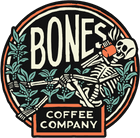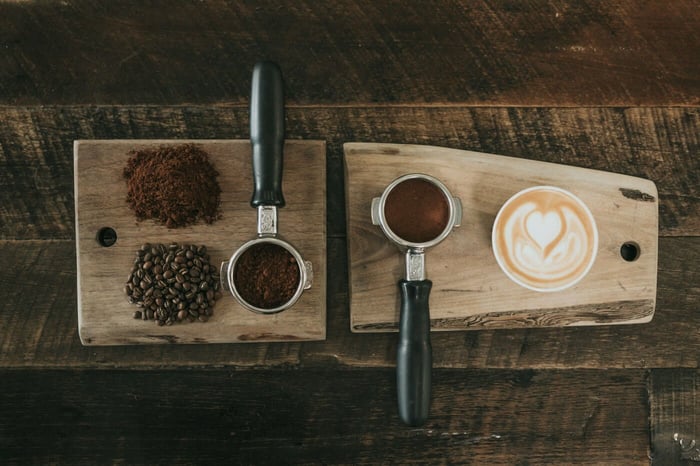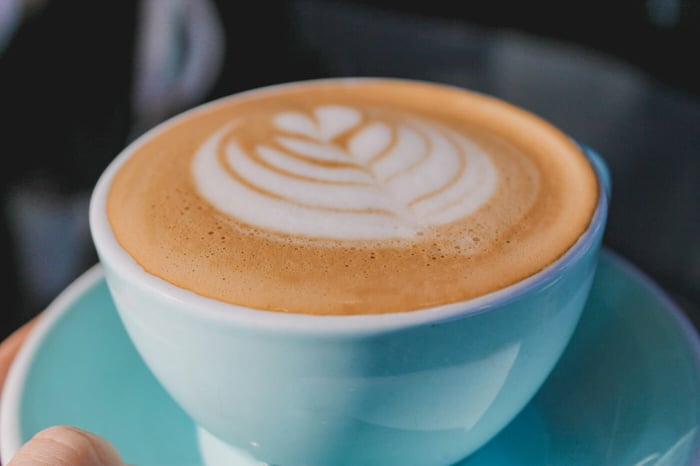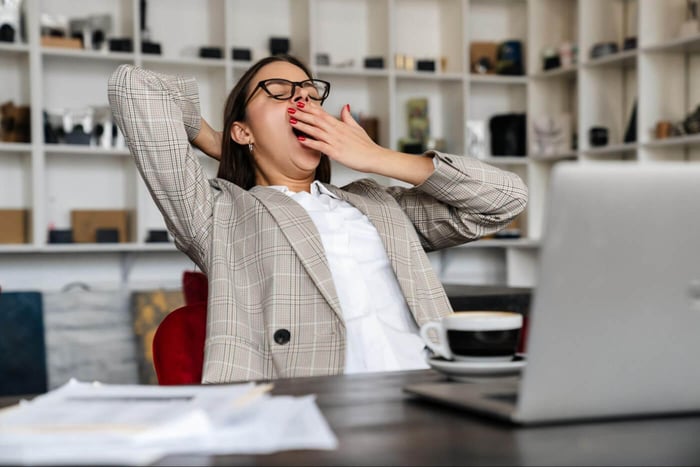Decaffeinated coffee, commonly known as decaf, is coffee that has had almost all of its caffeine content removed. The decaffeination process typically removes 97% to 99.9% of caffeine, resulting in a brew that retains the taste and aroma of coffee but has minimal stimulant effect.
Decaf coffee has existed since 1906 when a German named Ludwig Roselius patented a method for extracting caffeine that involved benzene and boiling in seawater. But how is decaf coffee made today? Today, there are much safer methods to remove caffeinefrom coffee and leave the coffee bean's aroma and flavor almost intact.
How Is Decaf Coffee Made? Caffeine Extraction
The most common methods of extracting caffeine from green beans are the supercritical carbon dioxide process, the Swiss Water Process, and chemical solvent extraction. If you’ve wondered, “How is decaf coffee made?” the discussion below should satisfy your curiosity.
Solvent-Based Methods
These decaffeination processes involve soaking green coffee beans in water and then using a solvent to selectively bind to and remove caffeine. The two most common solvents are methylene chloride and ethyl acetate.
Methylene chloride or ethyl acetate can effectively remove caffeine. However, methylene chloride is considered a potential carcinogen. Ethyl acetate, on the other hand, is a naturally occurring compound and is considered safer, but it may not be as effective in removing caffeine.
Both solvent-based methods are regulated to ensure that amounts of residual chemical solvent in decaffeinated coffee remain well below harmful levels, with industry standards and health regulations strictly limiting their presence to safeguard consumer health.
Swiss Water Process
Compared to the above-mentioned decaffeination processes, the Swiss Water method does not involve chemical solvents. Instead of a chemical solvent, it relies on solubility and osmosis to decaffeinate unroasted coffee beans. The beans are soaked in hot water to dissolve the caffeine, and then the water is passed through activated charcoal filters.
The tiny pores in charcoal trap the caffeine molecules but allow the smaller flavor and oil molecules to pass through. This process is unique because it uses a completely chemical-free technology.
The water remaining after filtration contains the water-soluble components of the green coffee beans, called the Green Coffee Extract.
The initial batch of green coffee beans is discarded after the caffeine is leached out into the hot water. This caffeine-saturated but flavor-rich water (Green Coffee Extract) is then used to soak new batches of coffee beans.
Since Green Coffee Extract is full of flavor compounds, it extracts caffeine from freshbeans. This method is efficient enough not to extract rich flavor compounds from the beans, keeping their taste largely intact.
This physical filtration method of removing caffeine is one of the reasons why the Swiss Water Process is certified organic and can maintain coffee's organic status, recognized by bodies such as the USDA.
Coffee decaffeinated using the Swiss Water Process maintains the subtle flavor notes of specialty coffees, offering caffeine-free coffee that is both environmentally friendly and rich in taste.
Good to Know: How is decaf coffee made at Bones Coffee? The process we use for decaffeinating coffee is the Swiss Water Process. This allows us to create decaf coffees while maintaining the full-bodied flavors of our top-grade beans. It assures us and our customers that every bit of Bones Decaf Coffee you buy from us is the safest it can be, offering the same health benefits while being caffeine-free. Enjoy freely! |
Carbon Dioxide Method
When the carbon dioxide process is used, the green coffee beans are soaked in water-saturated carbon dioxide (CO2) gas under high pressure. The gas-liquid carbon dioxide acts as a solvent and selectively dissolves the caffeine, leaving the flavor compounds intact while producing caffeine-free beans.
The carbon dioxide method method utilizes supercritical CO2—a state where the CO2 is both a liquid and a gas—which acts as an effective solvent for caffeine due to its small molecular size.
The CO2 can penetrate the coffee beans deeply, extracting caffeine while leaving more delicate flavor compounds largely unaffected. The process is highly efficient and minimizes environmental impact because the CO2 can be recycled and reused within the system.
The carbon dioxide decaffeination process is also considered one of the safest methods since it doesn't involve chemical solvents that are potentially harmful. However, the setup and operation costs of the carbon dioxide method are significant, making it more expensive than other methods of producing decaf coffees.
Important: While decaf coffees contain significantly lower caffeine content than caffeine-rich coffee, these are not completely caffeine-free. A typical 8-ounce (240-milliliter) cup of regular coffee contains 95–200 mg of caffeine, while the same serving of decaf contains about 2–15 mg, depending on the decaffeination method. While decaf coffees may not be completely caffeine-free, the reduced caffeine content benefits those sensitive to caffeine or simply prefer their coffee decaffeinated. |
How Does Decaffeinated Coffee Taste?

Now that we’ve discussed the answer to “How is decaf coffee made?”, it’s time to delve deeper into how decaf tastes.
The taste of decaffeinated coffee compared to typical coffee is a subject of much debate among coffee enthusiasts and the coffee industry. While the decaffeination process aims to remove caffeine without affecting the taste, decaffeination processes can sometimes alter the flavor profile of the coffee beans.
The decaf coffee taste profile can be attributed to several factors:
Decaffeination Process
The method used to create decaffeinated coffee can impact its taste. For instance, the Swiss Water method, which uses water and activated charcoal, is known to decaffeinate coffee without sacrificing its original flavors. On the other hand, decaffeination that involves a direct solvent process might result in a slightly altered taste.
Quality of Beans
The quality of the unroasted coffee beans or green coffee beans used can also influence the taste. Some manufacturers use lower-quality green beans for decaffeinated coffee since the decaffeination process can mask inferior flavors. However, high-quality decaffeinated coffee crafted from premium green beans can taste very similar to regular coffee.
Roasting Process
The roasting process of green coffee beans can also affect the taste of decaf coffee. Decaffeinated beans are harder to roast evenly due to their altered structure after decaffeination, which can lead to a different flavor profile.
Brewing Method
The brewing method used on coffee beans can also impact the taste. For example, espresso shots of caffeine-free coffee might taste slightly different than regular espresso due to the high pressure and temperature used in brewing.
In a blind taste test, the average coffee drinker might struggle to distinguish between decaf and normal coffee, especially if the decaffeinated coffee is of high quality and has been properly brewed. If it's a Bones flavored decaffeinated coffee, you definitely won't catch the difference between drinking decaf coffee and regular caffeinated coffee!
However, coffee connoisseurs with a refined palate might notice subtle differences in flavor, body, and acidity, which some may even prefer to regular coffee.
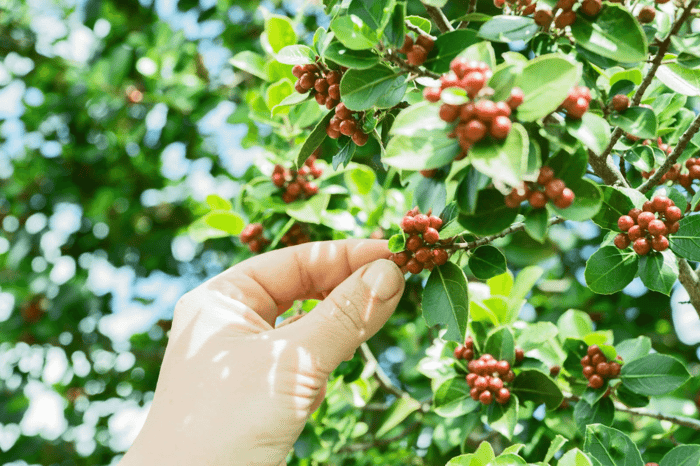
What are the Health Implications of Decaffeinated Coffee?
Decaffeinated coffee offers a delightful solace for those who endure caffeine sensitivity and strict dietary guidelines. This specially processed brew allows everyone to indulge in the rich, comforting ritual of coffee drinking without the typical caffeine-related side effects.
If you're watching your caffeine intake, you'll be glad to know that most decaf coffee is almost as healthy as normal coffee.
Decaffeinated coffee, like regular coffee, offers numerous health benefits. It is a rich source of antioxidants, which are known to be good for your immune system. Caffeine contributes to health benefits such as the reduction of inflammation, combating of free radicals, and the potential reduction of the risk of certain diseases such as heart disease and certain types of cancer.
For example, one study found that people who take 3–5 cups of coffee a day have a 15% lower risk of heart disease. Coffee also helps with depression, lowers the risk of diabetes, and helps prevent Parkinson's Disease (when caffeinated).
However, it's important to note that the decaffeination process can sometimes result in a slight reduction in the antioxidant content compared to coffee with regular caffeine content. The exact difference can vary depending on the specific method of decaffeination used.
One common concern about coffee consumption is caffeine's potential to cause dehydration due to its diuretic effect. That means it can cause the kidneys to make more urine and can contribute to water loss.
However, the total amount of fluid consumed, especially with larger coffees such as cappuccinos and Americanos, can help offset the fluid loss. Nevertheless, drinking decaf coffee can help reduce this diuretic effect.
Another health aspect to consider is the acidity of coffee. Some people find that coffee can trigger acid reflux or other digestive issues. Decaffeinated coffee is generally less acidic than caffeinated coffee, which may make it a more comfortable choice for individuals with these conditions.
Caffeine also relaxes the sphincter muscles in the esophagus, which further contributes to reflux. The severity of this effect varies depending on factors such as the type of green coffee bean and the brewing method used.

Is Decaffeinated Coffee Safe?
Yes, high-quality decaffeinated coffee is safe for consumption, especially when the methods used are the Swiss Water Process or the supercritical CO2 process.
Even when potentially harmful chemicals are used in removing caffeine, such as methylene chloride, producers adhere to stringent safety standards set by regulatory authorities such as the U.S. Food and Drug Administration (FDA).
Ethyl acetate is considered a less harmful solvent, but it's used with the same strict safety standards.
After decaffeination, coffee beans are washed and steamed multiple times before roasting to remove practically all the remaining chemical solvent content. The FDA mandates that any residues should not exceed 10 parts per million (ppm), which makes the risk to humans “essentially non-existent.”
So, is decaffeinated coffee bad for you? The answer is no. However, as with any food or beverage, it's important to consume decaffeinated coffee in moderation and according to your individual health needs and preferences.
Plus, poor quality decaffeinated coffee obtained from questionable companies may not adhere to the strict safety standards set by regulatory authorities worldwide.
Important: Although caffeine-free coffee is safe for consumption, the US Environmental Protection Agency (EPA) is still proposing a ban on almost all industrial uses of methylene chloride. This is driven by the need to protect workers in factories that produce and handle the chemical, given the terrible health effects of exposure to the chemical. |
How to Drink Decaffeinated Coffee
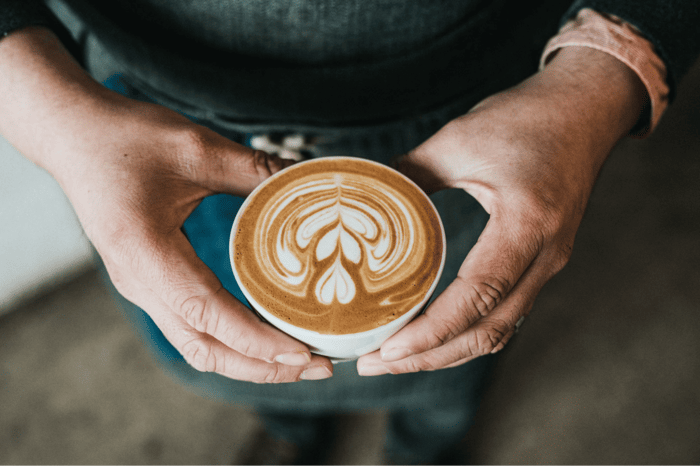
Decaf coffee, much like its caffeinated counterpart, is versatile and can be used in a variety of brewing methods. The decaffeination process does not significantly alter the physical properties of the coffee beans, allowing them to be ground and brewed in the same manner as normal coffee.
Espresso
Decaf coffee can certainly be used to make espresso. The key to a good espresso is not the caffeine level typically present in a shot, but the quality of the beans and the fineness of the grind. Some coffee connoisseurs argue that the subtle flavor differences in the best decaf coffee can actually add a unique twist to the espresso.
French Press
The French press method, which involves steeping coffee grounds in hot water and then pressing them to separate the liquid, works well with decaf coffee. This method allows the full flavor of the coffee to be extracted, making it a good choice for decaf beans.
Cold Brew
Decaf coffee can also be used for cold brew, a method that involves steeping coffee grounds in cold water for an extended period. This method tends to produce a smoother, less acidic coffee, which can complement the slightly milder flavor profile of decaf coffee.
Drip Coffee
Drip coffee makers can also be used with decaf coffee. This method, which involves hot water dripping through a filter containing coffee grounds, is one of the most common ways to brew coffee and works just as well with decaf.
Aeropress
The Aeropress is a relatively new brewing method that combines elements of the French press and espresso methods. It's known for producing a clean, full-bodied cup of coffee, and it works well with decaf beans.
While decaf coffee can be used in any brewing method, it's important to note that the flavor profile of decaf coffee can be slightly different from regular coffee due to the decaffeination process. This means the resulting brew may taste slightly different when made with decaf coffee.
How to Choose a Good Quality Decaffeinated Coffee?
Choosing the best decaf coffee to add to your stash can be challenging, especially with the wide variety of available options. However, certain factors can help you make an informed decision.
Check the Origin of the Coffee Beans
The quality of decaf coffee, like normal coffee, largely depends on the origin of the coffee beans. Beans from regions like Colombia, Ethiopia, and Brazil are known for their distinct flavors.
Buy Organically Decaffeinated Beans
The method used to decaffeinate the coffee beans can significantly affect the taste and quality of the coffee. The Swiss Water Method and the Carbon Dioxide Method are well-known for preserving the flavor of coffee beans. Look for these terms on the packaging.
Although high-quality coffee beans that have been organically decaffeinated are more expensive, they're worth the extra cost to ensure a tasty and healthy batch of coffee.
Go for Light or Medium Roast
The roast level of the coffee beans can also influence the taste of the coffee. Light roasts tend to retain more of the original coffee flavor, while dark roasts have a stronger, more robust flavor.
Hint: Decaf coffee beans are challenging to roast, even for experienced roasters. They go dark more quickly than regular beans and can be confusing. In fact, some roasters don't decaffeinate their best beans, which affects the quality of decaf coffee. |
Check Certifications
Certifications can provide assurance about the quality and ethical sourcing of the coffee. Look for certifications like Fair Trade, Organic, Rainforest Alliance, and Swiss Water.
Freshness
Coffee is best consumed fresh. Check the roast date on the packaging and try to consume the coffee within a month of this date.
Brand Reputation
Lastly, consider the reputation of the brand. Brands that are known for their quality and consistency can be a safe choice.
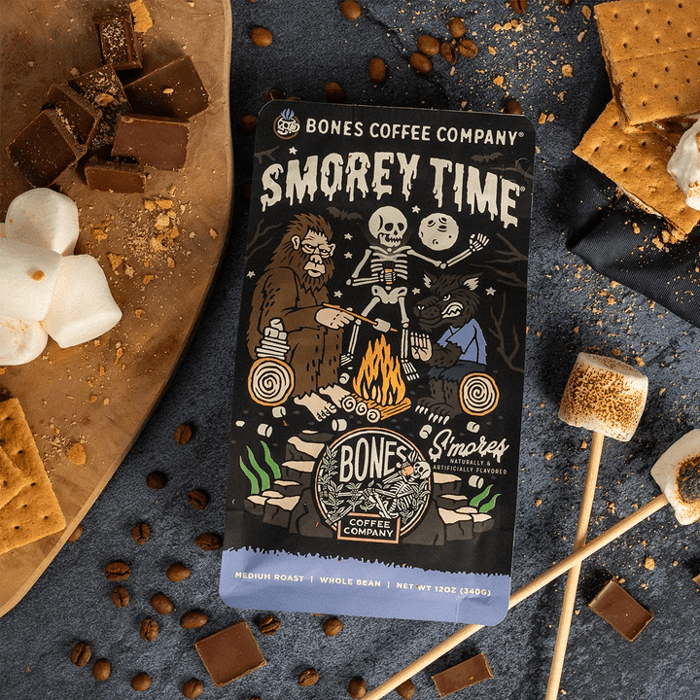
“It seems like decaf flavors are always just okay, but this flavor is excellent. I highly recommend it as it doesn’t even taste like you’re not drinking caffeine.”
- Brad P.
Don't Be Afraid to Go Big on Decaf
Now you know how decaf coffee is made. It's safe, it's flavorful, and you still get most of the health benefits of caffeinated coffee.
The main bone of contention is the flavor of decaf coffee, and that's where we come in. At Bones Coffee, we believe that decaffeinated doesn't mean diminished flavor or adventure in your cup. Embracing decaf coffee is an exciting journey into a world where you can savor bold, robust flavors without the caffeine.
We ensure that every batch is as adventurous and flavorful as our customers have come to expect. We source our beans from the best farms in Central and South America for both our caffeinated and decaf coffee blends.
That's one reason why our decaf coffee options remain full-bodied and delicious. Another reason is that our flavored decaf coffee has the lowest calorie count to make it a perfect choice for health-conscious coffee lovers, with only 2 calories per 8 ounces.
So, don't hesitate to go big on decaf with Bones Decaf Coffee—it's all the flavor, minimal caffeine, and endless opportunities to explore coffee in new and exciting ways.
